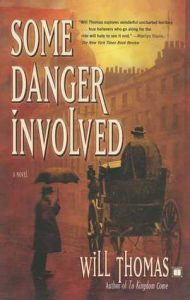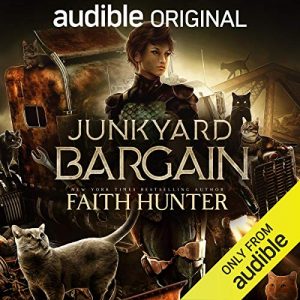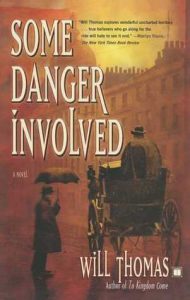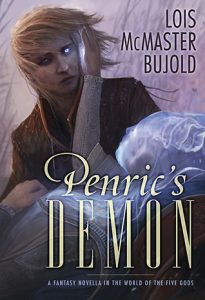 Old Scores (Barker & Llewelyn, #9) by Will Thomas
Old Scores (Barker & Llewelyn, #9) by Will Thomas Format: ebook
Source: purchased from Amazon
Formats available: hardcover, paperback, ebook, audiobook
Genres: historical fiction, historical mystery
Series: Barker & Llewelyn #9
Pages: 294
Published by Minotaur Books on October 3, 2017
Purchasing Info: Author's Website, Publisher's Website, Amazon, Barnes & Noble, Kobo, Bookshop.org, Better World Books
Goodreads
When a Japanese diplomat is murdered, and Cyrus Barker is the prime suspect, Barker and sidekick Llewelyn must work against the clock to find the real killer.
In London of 1890, the first Japanese diplomatic delegation arrives in London to open an embassy in London. Cyrus Barker, private enquiry agent and occasional agent for the Foreign Service Office, is enlisted to display his personal Japanese garden to the visiting dignitaries.
Later that night, Ambassador Toda is shot and killed in his office and Cyrus Barker is discovered across the street, watching the very same office, in possession of a revolver with one spent cartridge.
Arrested by the Special Branch for the crime, Barker is vigorously interrogated and finally released due to the intervention of his assistant, Thomas Llewelyn, and his solicitor. With the London constabulary still convinced of his guilt, Barker is hired by the new Japanese ambassador to find the real murderer.
In a case that takes leads Barker and Llewelyn deep into parts of London's underworld, on paths that lead deep into Barker's own mysterious personal history, Old Scores is the finest yet in Will Thomas's critically acclaimed series.
My Review:
 Nine books into the Barker & Llewelyn series, the adventures in which and of which are chronicled by the pen of Cyrus Barker’s once-apprentice and now fully licensed assistant private enquiry agent Thomas Llewelyn, it’s not a surprise to either the reader or Llewelyn that Barker has plenty of old scores to settle in this middle of his fascinating but hard-knock life.
Nine books into the Barker & Llewelyn series, the adventures in which and of which are chronicled by the pen of Cyrus Barker’s once-apprentice and now fully licensed assistant private enquiry agent Thomas Llewelyn, it’s not a surprise to either the reader or Llewelyn that Barker has plenty of old scores to settle in this middle of his fascinating but hard-knock life.
It’s possibly even less of a surprise to Llewelyn that his ‘Guv’ has made more than enough enemies over the course of that remarkable life that there are an equal if not greater number of people who have old scores to settle with HIM.
The case in Old Scores begins seemingly innocuously, with the visit of a group of Japanese dignitaries to Barker’s authentic and beautiful Japanese garden – a sanctuary hidden behind his London townhouse.
After a frenzy of preparation, the visit itself seems to go quite well. With two notable exceptions. The British official escorting the party is a boor who displays his contempt for these prestigious guests with his every utterance. And it’s clear to Thomas Llewelyn that his Guv is already well acquainted with one member of the party – and that whatever history lies between Barker and the Japanese official is of long and painful standing.
(The treatment of the Japanese delegation by British officials is reminiscent of their contemptuous treatment of Chinese officials in the excellent The Murder of Mr. Ma by John Shen Yen Nee and SJ Rozan – in spite of the several decades that lie between the two mysteries.)
The story in Old Scores is a combination of the chance that ‘the enemy of my enemy might be my friend’ – at least temporarily – and ‘too many cooks spoil not just the soup but the whole entire meal’.
The Japanese delegation is fractured beyond repair even before the members start dropping like flies. The British are trying to gain a foothold in Japan to counter American ambitions in Asia, the Japanese want to oust the Americans from the position of power they took by force in 1853 AND they have imperial ambitions of their own, while the question of whether the future of the country lies in returning to the traditionalism and isolationism of the past or is best served by embracing the world as it is in hopes of controlling as much of it as possible. The members of the delegation display all of these possible outcomes in microcosm – and with deadly results.
And in the middle of it all is a contest between Cyrus Barker and the man who murdered his wife – back when Barker was considerably younger and possibly just a bit more naive than the implacable man he became after that terrible loss.
 Escape Rating A-: It’s not really a surprise that I picked Old Scores (and also the preceding short story, An Awkward Way to Die – which was fun but there just wasn’t enough there there for a review) out of the virtually towering TBR pile over the weekend. The Barker & Llewelyn series has become a comfort read for me, portraying a world that may be more than a century gone but is easy to slip right back into thanks to the pen of author Will Thomas. I needed to get AWAY, as far as mentally possible, from the combination of anxiety and vitriol that marks this year’s U.S. election.
Escape Rating A-: It’s not really a surprise that I picked Old Scores (and also the preceding short story, An Awkward Way to Die – which was fun but there just wasn’t enough there there for a review) out of the virtually towering TBR pile over the weekend. The Barker & Llewelyn series has become a comfort read for me, portraying a world that may be more than a century gone but is easy to slip right back into thanks to the pen of author Will Thomas. I needed to get AWAY, as far as mentally possible, from the combination of anxiety and vitriol that marks this year’s U.S. election.
So I returned to the Victorian setting where Cyrus Barker always gets his man and his second in command, Thomas Llewelyn, does his best to chronicle the case, make sure the bills get paid, and support his ‘Guv’ in every way possible. Even when Barker is doing his usual damndest to keep all of his cards VERY close to his vest – up to and including the cards that Llewelyn – as his backup – really, really needs to know.
This is a case that DEFINITELY has its awkward aspects. Barker keeps entirely too many secrets about his past. Which he’s entitled to, but not if those secrets threaten to get his whole entire household killed or imprisoned. Which in this case they definitely are.
The result is that Llewelyn flails around at points when he shouldn’t have to. This is a case that hinges on things that his Guv hasn’t told him – secrets that are 20+ years old at this point. One can empathize both with Barker’s desire to let the past remain in the past AND Llewelyn’s desire not to end up dead.
We don’t expect Llewelyn to get to the solution ahead of his boss, but neither do we expect his boss to leave him quite so completely in the dark. It’s a bit of a conundrum that leaves our chronicler stumbling around in that dark more than is usual for this series. I’m here for the competence porn, and Barker made that more difficult than usual on several fronts.
 But in the end, what carries the story, as always, are the characters and their ever more deeply entwined relationships. So this book did exactly what I picked it up for – it took me far, far away from the problems of today.
But in the end, what carries the story, as always, are the characters and their ever more deeply entwined relationships. So this book did exactly what I picked it up for – it took me far, far away from the problems of today.
In the end, the story does reveal a very great deal about Cyrus Barker before he became the man that Llewelyn met in the first book in the series, Some Danger Involved. I expect to see more consequences of this book’s revelations in the following books in the series.
I’ll certainly be picking up Blood Is Blood the next time I’m looking for a comforting murder to sink my reading teeth into.

 The Small and the Mighty: Twelve Unsung Americans Who Changed the Course of History, from the Founding to the Civil Rights Movement by
The Small and the Mighty: Twelve Unsung Americans Who Changed the Course of History, from the Founding to the Civil Rights Movement by  Junkyard Roadhouse (Shining Smith #4) by
Junkyard Roadhouse (Shining Smith #4) by  When I finished the previous audiobook in this utterly awesome, completely riveting, absolutely compelling series that began with
When I finished the previous audiobook in this utterly awesome, completely riveting, absolutely compelling series that began with  Shining’s reward for taking out Warhammer is three-fold. Warhammer and her nest have been eliminated – with extreme prejudice. So that’s one enemy in the ground. Shining took all of Warhammer’s intel as part of the spoils of war – a vast increase in Shining’s knowledge and insight into the world around her and the enemies that were backing Warhammer and will absolutely see Shining and her allies as a threat.
Shining’s reward for taking out Warhammer is three-fold. Warhammer and her nest have been eliminated – with extreme prejudice. So that’s one enemy in the ground. Shining took all of Warhammer’s intel as part of the spoils of war – a vast increase in Shining’s knowledge and insight into the world around her and the enemies that were backing Warhammer and will absolutely see Shining and her allies as a threat. Escape Rating A: This is the story I felt compelled to finish last Friday, to the point where, as much as IMHO Khristine Hvam thoroughly embodies the voice of Shining Smith, I switched to the text – grateful that the text was already available for a change – in order to see how Shining got herself and her people out of the pickle she was in, turned it to her advantage, AND set the stage for the next book in the series.
Escape Rating A: This is the story I felt compelled to finish last Friday, to the point where, as much as IMHO Khristine Hvam thoroughly embodies the voice of Shining Smith, I switched to the text – grateful that the text was already available for a change – in order to see how Shining got herself and her people out of the pickle she was in, turned it to her advantage, AND set the stage for the next book in the series. Meaning that this is not the place to start your experience of Shining’s truly fucked up future Earth. Start with
Meaning that this is not the place to start your experience of Shining’s truly fucked up future Earth. Start with  Hell Bay (Barker & Llewelyn, #8) by
Hell Bay (Barker & Llewelyn, #8) by  In this eighth entry in the
In this eighth entry in the  And, as stated earlier, while we still don’t know as much as Thomas Llewelyn would like about Cyrus Barker’s background, he did observe a great deal about the relationship between his ‘Guv’ and Mrs. Ashleigh and it’s clear that she is going to be having, perhaps not exactly second thoughts but certainly some serious rethinking about that relationship and where she thinks its going vs. where Barker will ever be willing to go – and not just because I seriously doubt the man will EVER be willing to attend another country house party.
And, as stated earlier, while we still don’t know as much as Thomas Llewelyn would like about Cyrus Barker’s background, he did observe a great deal about the relationship between his ‘Guv’ and Mrs. Ashleigh and it’s clear that she is going to be having, perhaps not exactly second thoughts but certainly some serious rethinking about that relationship and where she thinks its going vs. where Barker will ever be willing to go – and not just because I seriously doubt the man will EVER be willing to attend another country house party. The Hermit Next Door by
The Hermit Next Door by  Escape Rating B: I finished this book with a lot more mixed feelings than I expected. I thought I would just love it (spoiler: I did love
Escape Rating B: I finished this book with a lot more mixed feelings than I expected. I thought I would just love it (spoiler: I did love  Anatomy of Evil (Barker & Llewelyn, #7) by
Anatomy of Evil (Barker & Llewelyn, #7) by  Private Inquiry Agents Cyrus Barker and Thomas Llewelyn have been on a collision course with this particular date with destiny since the very first book in this series,
Private Inquiry Agents Cyrus Barker and Thomas Llewelyn have been on a collision course with this particular date with destiny since the very first book in this series,  In the end, Barker gets his man – with Llewelyn’s able assistance – just as he always does. That the solution seems plausible even though justice can’t truly be served feels right, true to the circumstances, and even surprisingly satisfactory – in spite of the lack of historical closure.
In the end, Barker gets his man – with Llewelyn’s able assistance – just as he always does. That the solution seems plausible even though justice can’t truly be served feels right, true to the circumstances, and even surprisingly satisfactory – in spite of the lack of historical closure. More Days at the Morisaki Bookshop (Days at the Morisaki Bookshop, #2) by
More Days at the Morisaki Bookshop (Days at the Morisaki Bookshop, #2) by  Escape Rating A-: I picked up More Days at the Morisaki Bookshop because, having fallen in love with the first book,
Escape Rating A-: I picked up More Days at the Morisaki Bookshop because, having fallen in love with the first book,  So maybe don’t listen to that part while you’re driving because the urge to cry right along with Takako is pretty much irresistible.
So maybe don’t listen to that part while you’re driving because the urge to cry right along with Takako is pretty much irresistible. Penric and the Bandit (Penric and Desdemona #13) by
Penric and the Bandit (Penric and Desdemona #13) by  Learned Divine Penric kin Jurald of Vilnoc is ALWAYS the single most dangerous person in the room in any situation because of his magic, his demon Desdemona, and the favor of his god, the Lord Bastard – and has been since the very first novella in this series,
Learned Divine Penric kin Jurald of Vilnoc is ALWAYS the single most dangerous person in the room in any situation because of his magic, his demon Desdemona, and the favor of his god, the Lord Bastard – and has been since the very first novella in this series,  Escape Rating A: After the previous entry in this series, the rather cozy and close to home
Escape Rating A: After the previous entry in this series, the rather cozy and close to home  The Most Human: Reconciling with My Father, Leonard Nimoy by
The Most Human: Reconciling with My Father, Leonard Nimoy by  Fatal Enquiry (Barker & Llewelyn, #6) by
Fatal Enquiry (Barker & Llewelyn, #6) by